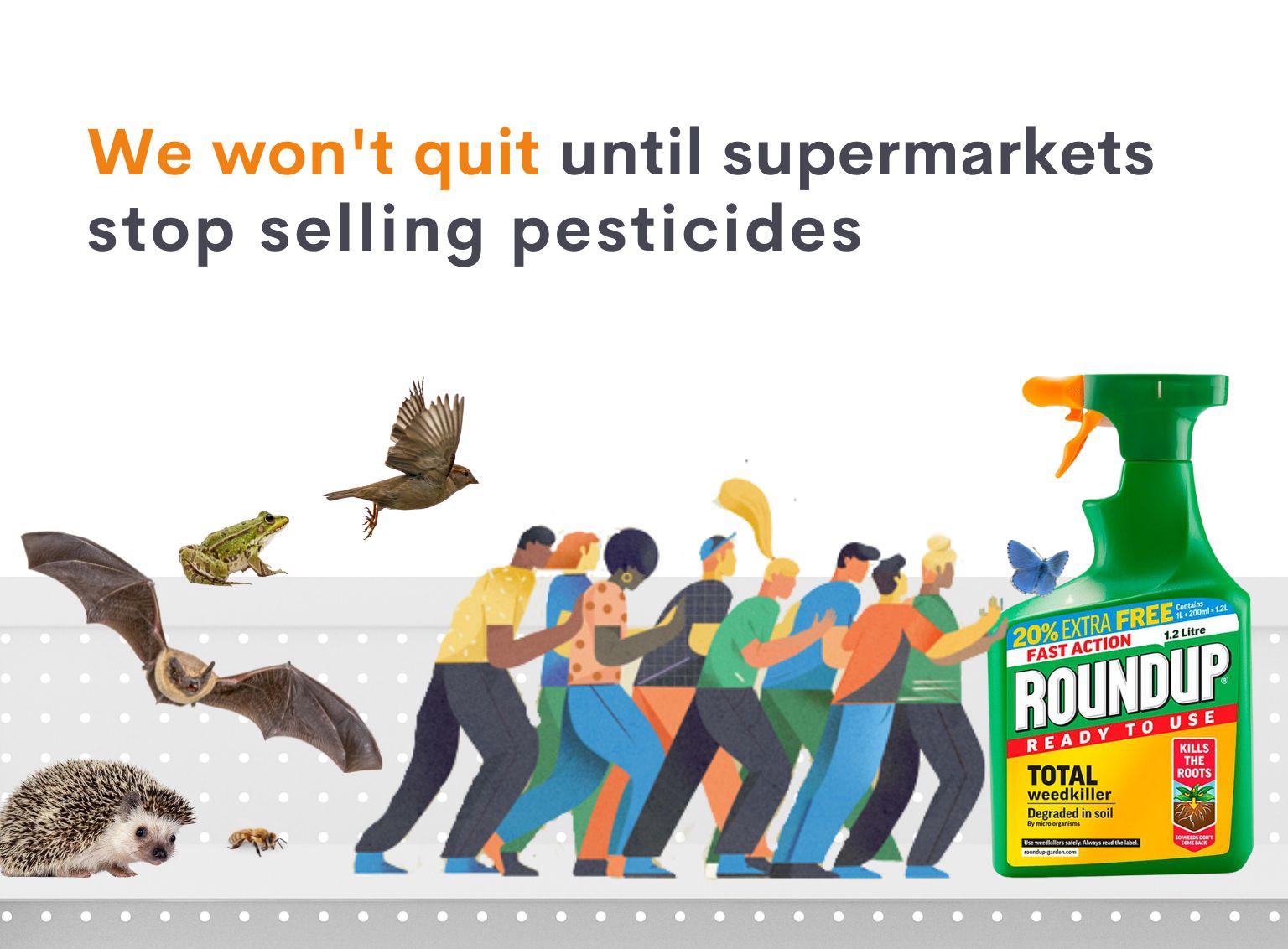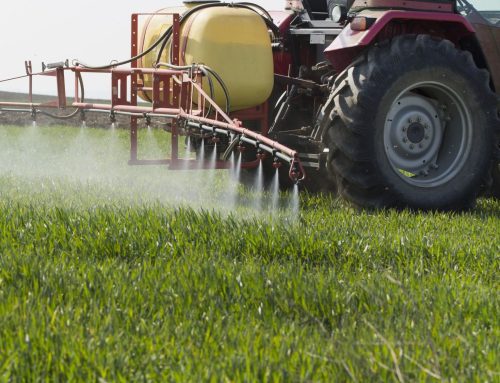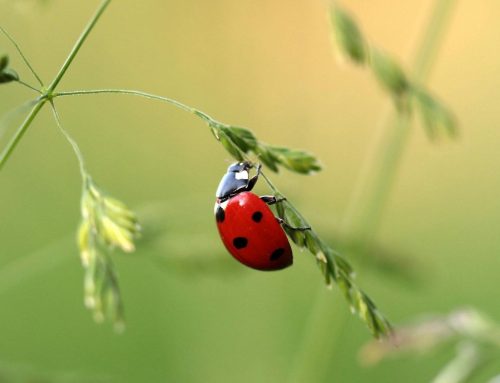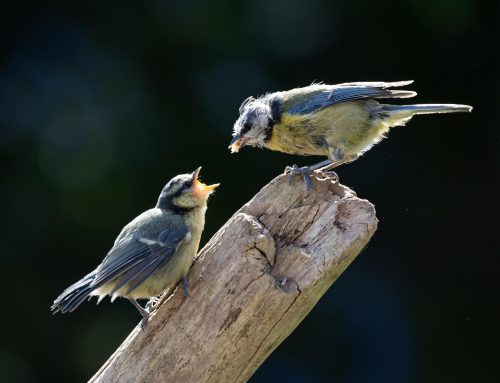The growing movement calling for supermarkets to stop selling harmful gardening pesticide products continues to make progress with your help. A number of major supermarkets are currently reconsidering their sale of synthetic pesticides so an email from you now could have real impact.
Thanks to public pressure, Co-op and Waitrose have already taken harmful weedkillers and insecticides off their shelves. While some other major supermarkets have removed a few particularly harmful products from their range, they continue to sell these poisons.
On this World Wildlife Day, we are once again asking you to stand up for nature by contacting supermarket CEOs. Change can take time but supermarkets tell us again and again that hearing from their customers drives them to improve. The UK is one of the most nature-depleted countries in the world. Our 22 million gardens could be incredible havens for wildlife – and safe spaces for children and pets – but only if they are chemical-free.
Take one minute to ask Aldi, Asda, Lidl, Morrisons, Sainsbury’s and Tesco to follow Waitrose and the Co-op’s lead and remove these poisons from their shelves.
Pesticides impact on our garden wildlife (and pets)
Gardens and allotments are havens for wildlife, but pesticide products can make them toxic environments. Herbicides (weedkillers), insecticides, and slug pellets are still widely used in gardens, poisoning our wildlife and removing their food sources. When was the last time you saw a hedgehog in your garden? Hedgehog numbers have declined from 30 million in the 1950s to around one million. Garden birds, bats, frogs and toads are all affected by pesticides. And our insects, pollinators and native flowers are disappearing at an alarming rate.
It’s more important than ever that we make our gardens pesticide-free and give our wildlife a chance to thrive again.
“Pesticides are poisons and there should be no place for them on supermarkets shelves. We should not be using these chemicals in our gardens and allotments, where our children and pets play, and where our wildlife should be thriving. In any case there is no need for them – it is easy to garden without pesticides.”
Professor Dave Goulson, University of Sussex
Pesticides impact on our health
The impacts of garden pesticide use aren’t just environmental. For example, there is evidence to suggest that the world’s most commonly used weedkiller – glyphosate (found in Roundup) – could cause cancer, and that the insecticide lambda-cyhalothrin (found in Resolva Bug Killer) can affect the immune system.
There is absolutely no justification for pesticides that pose a risk to human health or the environment to be used by the general public without any training or guidance. Plus, gardening without pesticides is simple!






